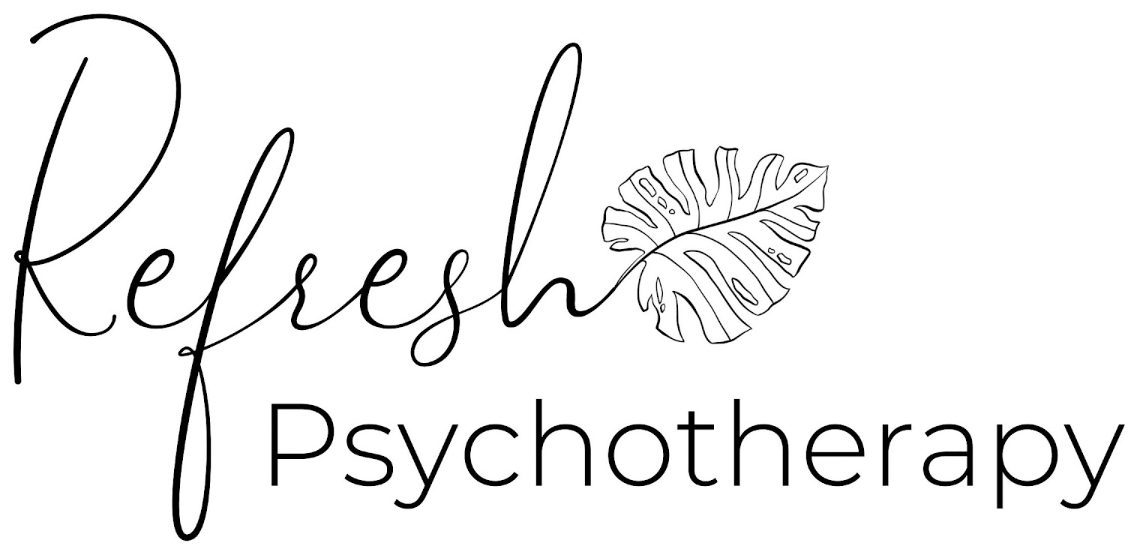
Mental Health for Entrepreneurs: What No One Talks About
Entrepreneurship is often framed as freedom—freedom from corporate structure, from limitations, from the 9-to-5. But what doesn’t get talked about nearly enough is what replaces those structures: emotional pressure, decision fatigue, financial risk, and a mental load so relentless it becomes a way of life. From the outside, entrepreneurship looks like hustle and innovation. But internally, it often feels like a quiet war between your vision and your nervous system.
This article unpacks the psychological costs of being a founder, freelancer, or small business owner. It’s written for the high-functioning entrepreneur who appears fine, meets deadlines, and gets results—but who secretly wonders if they’re one crisis away from collapse. If you’ve ever said “I can’t afford to burn out” while already being burned out, this is for you.
The Entrepreneurial Mindset: Ambition Meets Anxiety
Many entrepreneurs don’t just stumble into business ownership—they are driven by a deep need to prove something, create something, or control something. While these motivations can be adaptive, they’re often rooted in early psychological patterns. Unresolved trauma, attachment injuries, or a childhood of emotional parentification can shape the need to be independent, exceptional, or untouchable (Schimelpfening, 2023).
Research shows that entrepreneurs score higher than average on traits like persistence, risk-taking, and creativity—but they also show elevated rates of anxiety, depression, and ADHD symptoms (Freeman et al., 2015). The very qualities that help you succeed can also put you at risk.
Reflection Prompt:
- What unmet need or unresolved story originally fueled your decision to become an entrepreneur?
Isolation in Leadership: The Myth of Being the Strong One
Entrepreneurs often find themselves in emotionally isolating roles. You’re the person your team looks to for guidance. Your clients rely on your consistency. Your friends assume you’re thriving because your business appears successful.
But the reality is that many founders can’t confide in anyone. Sharing self-doubt might rattle investors. Admitting burnout might undermine credibility. Even among other entrepreneurs, there’s often an unspoken competition to “look” like you have it together.
This emotional isolation—what psychologists call role entrapment—can significantly increase stress-related health issues (Kahn et al., 1964). When your public identity is built on being capable, resilient, or visionary, asking for help feels like a betrayal of your brand.
Common Coping Strategies That Backfire
When emotional overwhelm becomes chronic, entrepreneurs often fall into compensatory coping strategies that temporarily soothe but ultimately exhaust the nervous system. These include:
- Overworking to avoid emotional discomfort
- Numbing with screens, caffeine, or alcohol
- Hyper-controlling tasks and people to manage anxiety
- Seeking dopamine from constant productivity instead of rest
These behaviors are often mislabeled as “just being driven,” but they are actually symptoms of dysregulation. Operating from survival mode can keep the business running—but only at the cost of your long-term mental health.
Reflection Prompt:
- What behaviors in your routine look like discipline from the outside but are actually forms of avoidance or anxiety management?
What Therapy Often Misses About Entrepreneurs
Traditional therapy models tend to focus on internal change: exploring childhood, identifying core beliefs, building emotional insight. While valuable, many entrepreneurs struggle to relate to these slower-paced approaches. Their stress is not only emotional but strategic and structural.
What many therapists miss is that entrepreneurs need their therapy to reflect the systems they’ve built around themselves. Their stress is often tied to business mechanics—difficult hires, cash flow uncertainty, client boundaries—and requires psychologically informed, business-literate support.
Effective therapy for entrepreneurs should include:
- Boundary work that maps onto client and team dynamics
- Emotional processing for leadership fatigue and ethical stress
- Rewiring beliefs about rest, failure, and worth
- Tools for self-regulation without losing ambition
Therapy that ignores the context of business stress risks pathologizing the client instead of supporting them.
The Burnout That Doesn’t Look Like Burnout
Many entrepreneurs burn out without realizing it. That’s because burnout in high performers doesn’t always look like collapse—it often looks like detachment, irritability, or feeling emotionally flat even when things are “going well.”
You might notice:
- Dreading small decisions you used to make easily
- Feeling resentful of your own success
- Watching your creativity disappear
- Waking up already exhausted
- Needing caffeine or pressure to function at all
This is not a personality flaw. It’s a nervous system in chronic overdrive. You’ve built an engine that only runs at 100 mph, and now it doesn’t know how to idle.
Reflection Prompt:
- What signs of burnout have you rationalized as “just being busy”? What would it take for you to believe they’re real?
Decision Fatigue and Emotional Exhaustion
Entrepreneurs make thousands of micro-decisions per week. This constant choice-making leads to decision fatigue, a form of cognitive depletion where your ability to weigh options or feel confident in your decisions erodes over time (Baumeister et al., 1998).
Decision fatigue increases anxiety, fuels perfectionism, and makes impulsive or avoidant behavior more likely. You might find yourself avoiding your inbox, redoing work to feel in control, or spiraling into indecision about hiring, marketing, or pricing.
This is not because you’re bad at business. It’s because your emotional bandwidth is maxed out.
The Psychology of Financial Risk and Identity
Unlike salaried professionals, entrepreneurs often tie their sense of self-worth to their revenue. When your income depends on your visibility, leadership, or personal brand, every dip in sales can feel like a personal failure.
The link between financial instability and mental health is well-documented (Richardson et al., 2013). But for entrepreneurs, financial stress also activates deep psychological triggers around identity: “Am I still valuable if I’m not making money?” or “What happens to me if this fails?”
These existential questions are rarely acknowledged in startup culture, yet they often drive chronic anxiety and shame.
Reflection Prompt:
- What financial outcomes have you wrongly internalized as reflections of your worth?
Entrepreneurial Trauma: What Nobody Names
Not all trauma comes from childhood. Many entrepreneurs experience trauma in their business. This can include:
- Being betrayed by a partner, employee, or contractor
- Losing your livelihood suddenly due to external circumstances
- Enduring public criticism or legal threats
- Navigating discrimination, bias, or systemic obstacles in your industry
These experiences can create PTSD-like symptoms—hypervigilance, difficulty trusting others, emotional reactivity—and often go unacknowledged because they don’t fit traditional definitions of trauma.
Yet business-related trauma changes how you lead, hire, delegate, and relate to your work. It deserves therapeutic attention.
Creating a Mental Health Infrastructure
Entrepreneurs need more than mindset work—they need infrastructure. That means building systems that support your mental health even when you’re not actively focused on it.
Start with:
- Clear delegation systems that reduce decision fatigue
- “Minimum viable rest” practices embedded into your week
- Regular therapy or coaching that includes business fluency
- A trauma-informed lens on your leadership style and team dynamics
- Scheduled check-ins with yourself that don’t revolve around goals
Mental health for entrepreneurs isn’t about adding more self-care—it’s about building work in a way that your nervous system can survive.
Reflection Prompt:
- What would it look like to build a business that sustains you, not just your clients or your revenue?
Rewriting the Internal Narrative
Entrepreneurs are often held hostage by invisible narratives: “I’m the only one who can do this,” “Success means never slowing down,” “If I drop a ball, everything will fall apart.” These stories are rarely questioned, even though they quietly dictate every decision you make.
Rewriting these beliefs doesn’t mean becoming passive or less ambitious. It means shifting from a fear-driven business to a sustainable one—where resilience doesn’t come from denial, but from integration.
In therapy, this might sound like:
- “My worth isn’t measured by urgency.”
- “Structure can protect my energy, not limit my creativity.”
- “I can rest without losing momentum.”
Your nervous system can become your ally—not your enemy—when your internal story no longer demands constant survival mode.
Final Reflection Prompt:
If your nervous system could design your business model, what would it look like?
Book your appointment today at refreshtherapynyc.clientsecure.me.
Written by: Keeley Teemsma, LCSW, MA
Works Cited
Baumeister, R. F., Bratslavsky, E., Muraven, M., & Tice, D. M. (1998). Ego depletion: Is the active self a limited resource? Journal of Personality and Social Psychology, 74(5), 1252–1265. https://doi.org/10.1037/0022-3514.74.5.1252
Freeman, M. A., Staudenmaier, P. J., Zisser, M. R., & Andresen, L. A. (2015). The prevalence and co-occurrence of psychiatric conditions among entrepreneurs and their families. Small Business Economics, 45(3), 431–452. https://doi.org/10.1007/s11187-015-9650-6
Kahn, R. L., Wolfe, D. M., Quinn, R. P., Snoek, J. D., & Rosenthal, R. A. (1964). Organizational stress: Studies in role conflict and ambiguity. John Wiley.
Richardson, T., Elliott, P., & Roberts, R. (2013). The relationship between personal unsecured debt and mental and physical health: A systematic review and meta-analysis. Clinical Psychology Review, 33(8), 1148–1162. https://doi.org/10.1016/j.cpr.2013.08.009
Schimelpfening, N. (2023). How childhood trauma affects adult entrepreneurs. Verywell Mind. https://www.verywellmind.com/trauma-in-entrepreneurs-7498674
Young, J. E., Klosko, J. S., & Weishaar, M. E. (2003). Schema therapy: A practitioner’s guide. Guilford Press.
